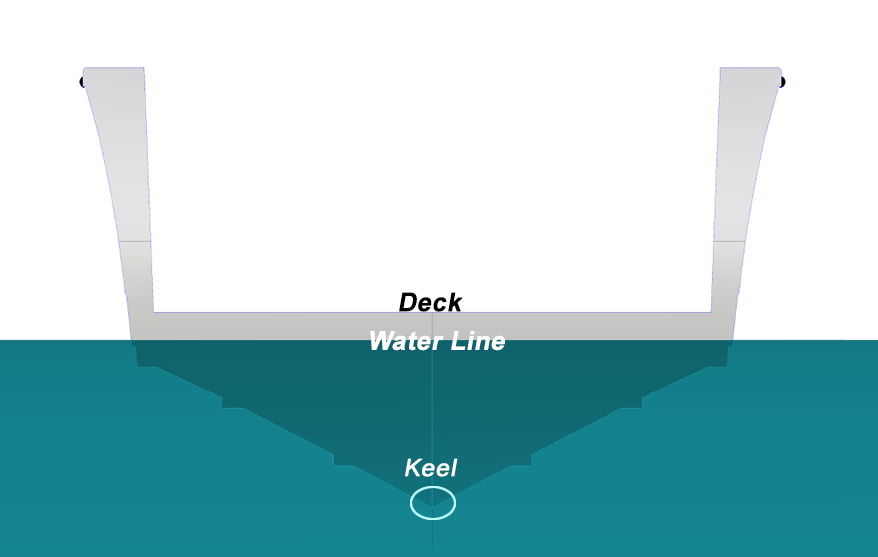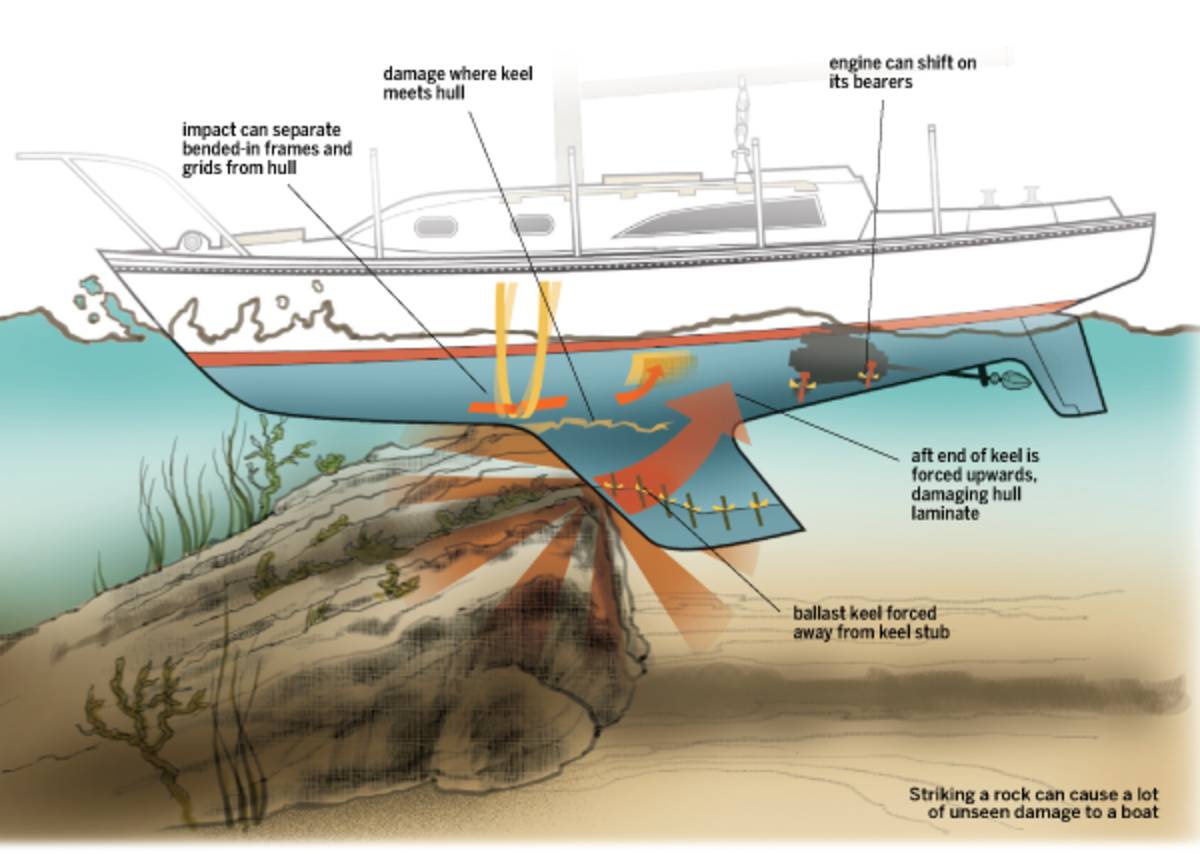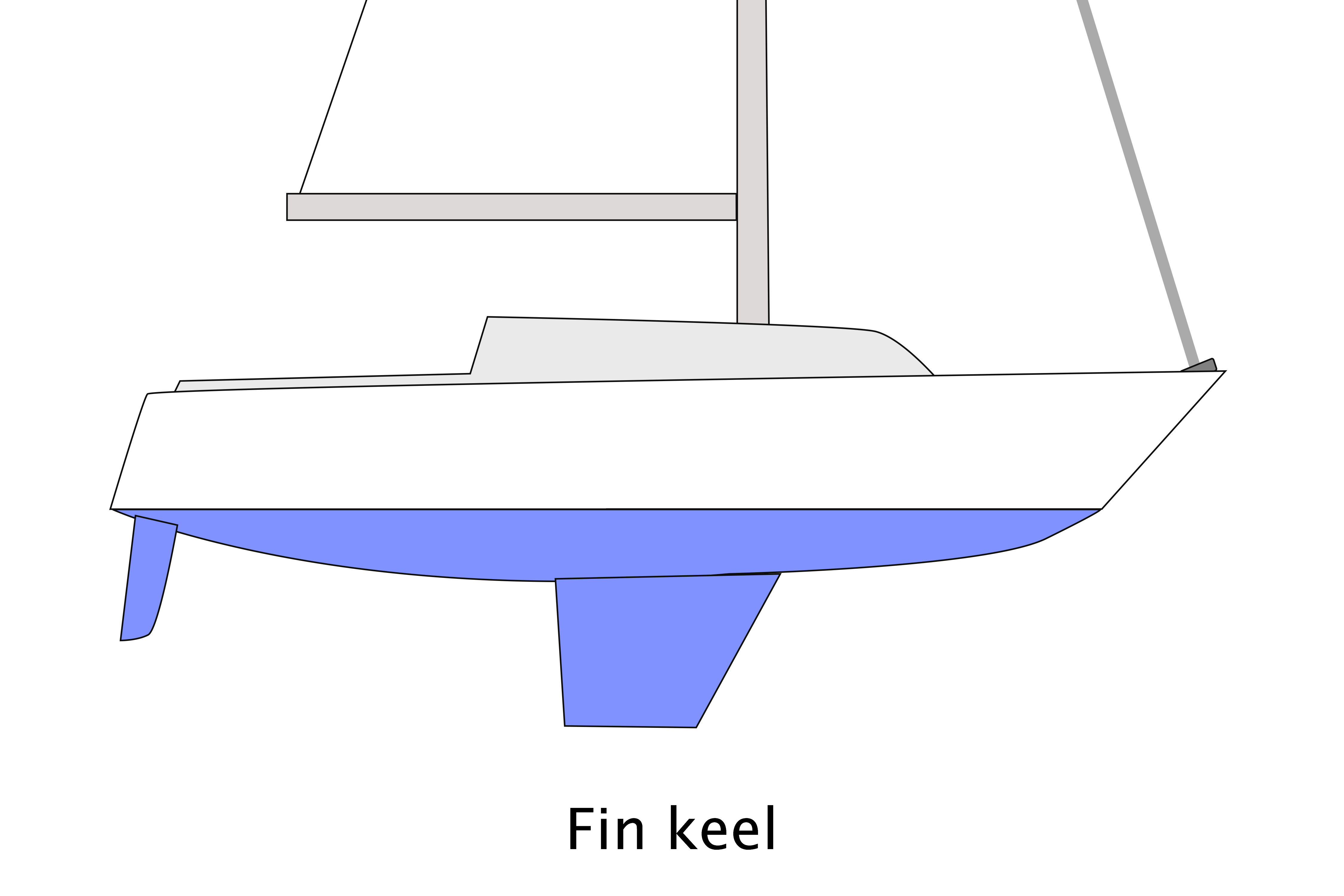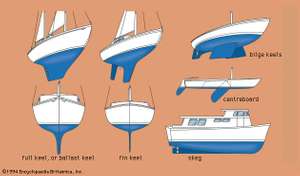
noun
- Nautical. a central fore-and-aft structural member in the bottom of a hull, extending from the stem to the sternpost and having the floors or frames attached to it, usually at right angles: sometimes projecting from the bottom of the hull to provide stability.
- Literary. a ship or boat.
- a part corresponding to a ship’s keel in some other structure, as in a dirigible balloon.
- (initial capital letter) Astronomy. the constellation Carina.
- Botany, Zoology. a longitudinal ridge, as on a leaf or bone; a carina.
- Also called brace molding. Architecture. a projecting molding the profile of which consists of two ogees symmetrically disposed about an arris or fillet.
verb (used with or without object)
- to turn or upset so as to bring the wrong side or part uppermost.
Verb Phrases
- keel over,
- to capsize or overturn.
- to fall as in a faint: Several cadets keeled over from the heat during the parade.
- on an even keel, in a state of balance; steady; steadily: The affairs of state are seldom on an even keel for long.
noun British Dialect.
- keelboat.
- a keelboat load of coal; the amount of coal carried by one keelboat.
- a measure of coal equivalent to 21 long tons and 4 hundredweight (21.5 metric tons).
verb (used with object) British Dialect.
- to cool, especially by stirring.
noun
- a red ocher stain used for marking sheep, lumber, etc.; ruddle.
noun
- one of the main longitudinal structural members of a vessel to which the frames are fastened and that may extend into the water to provide lateral stability
- on an even keel well-balanced; steady
- any structure corresponding to or resembling the keel of a ship, such as the central member along the bottom of an aircraft fuselage
- biology a ridgelike part; carina
- a poetic word for ship
verb
- to capsize
noun Eastern British dialect
- a flat-bottomed vessel, esp one used for carrying coal
- a measure of coal equal to about 21 tons
noun
- red ochre stain used for marking sheep, timber, etc
verb (tr)
- to mark with this stain
verb
- an archaic word for cool
noun
- a fatal disease of young ducks, characterized by intestinal bleeding caused by Salmonella bacteria
“lowest timber of a ship or boat,” mid-14c., probably from a Scandinavian source, cf. Old Norse kjölr “keel,” Danish kjøl, Swedish köl, from Proto-Germanic *keluz, of uncertain origin. Some etymologists say this is unconnected with the keel that means “a ship, barge,” which also is the root of Middle Dutch kiel “ship,” Old English ceol “ship’s prow,” Old High German kiel, German Kiel “ship,” but the two words have influenced each other. Barnhart, however, calls them cognates. This other word is said to be from Proto-Germanic *keula, from PIE *geul- “rounded vessel.” Keel still is used locally in England and U.S. for “flat-bottomed boat,” especially on the Tyne.
1838, American English, from keel (n.). To keel over (1876) is from the nautical image of a ship turning keel-up. Related: Keeled; keeling.
“to keep cool,” from Middle English kelen, from Old English celan “to cool,” from col “cool” (see cool). The form kele (from Old English colian) was used by Shakespeare, but it later was assimilated with the adjective form into the modern verb cool. Cognate with Dutch koelen, Old High German chuolen, German kühlen.
In addition to the idiom beginning with keel
- keel over
also see:
- on an even keel
 Liberal Dictionary English Dictionary
Liberal Dictionary English Dictionary




